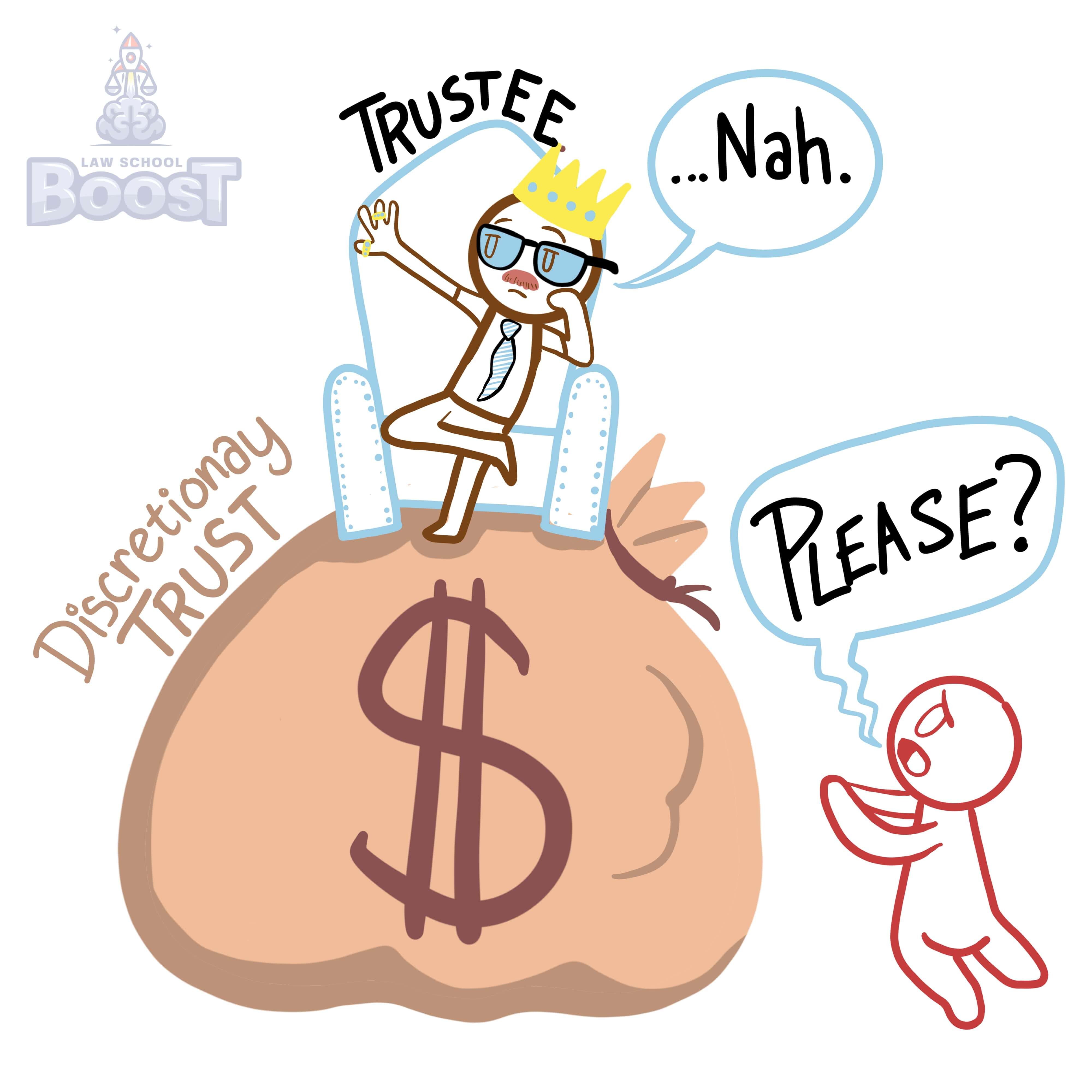🥺
Trusts • Transfer of Interests
TRUSTS#022
Legal Definition
In a discretionary trust, the trustee is given sole and absolute discretion to determine how much to pay the beneficiary, if anything, and when to make such payments, if ever.
Plain English Explanation
A discretionary trust gives full discretion to the trustee on how to spend trust funds on the beneficiary. In other words, a trustee can use their own personal judgment to decide when to pay a beneficiary, how much to pay a beneficiary, and whether to pay the beneficiary at all.
You may be thinking, "Well this sure sounds a lot like a spendthrift trust!" You're right. These two trusts are very similar, but what makes them different is the amount of control the trustee has. With a spendthrift trust, the trustee may have some obligations to provide money to the beneficiary under the terms of the trust. In contrast, no such requirement exists under a discretionary trust.
You may be thinking, "Well this sure sounds a lot like a spendthrift trust!" You're right. These two trusts are very similar, but what makes them different is the amount of control the trustee has. With a spendthrift trust, the trustee may have some obligations to provide money to the beneficiary under the terms of the trust. In contrast, no such requirement exists under a discretionary trust.
Hypothetical
Hypo 1: Sam creates a discretionary trust, naming his friend Bob as the trustee. Sam funds the trust with $100,000 and instructs Bob to use the money for Sam's benefit if Bob believes Sam needs it. A month later, Sam asks Bob for $10,000 to take a vacation. Bob refuses, believing the vacation is unnecessary. Result: As trustee of the discretionary trust, Bob has complete discretion over when and how much to distribute to Sam. Bob was within his rights to refuse Sam's request for $10,000 because Bob did not believe it was in Sam's best interests.
Hypo 2: Sam creates a discretionary trust, naming his friend Amy as the trustee. Sam funds the trust with $500,000. Over the next few years, Amy distributes $50,000 annually to Sam to supplement his income. When Sam loses his job, he asks Amy for $100,000 to cover his expenses while job searching. Amy approves the distribution as reasonable under the circumstances. Result: As trustee, Amy can distribute funds at her discretion when she believes Sam needs additional support. Approving $100,000 was within her power as trustee during Sam's period of unemployment. You may feel like this is excessive — but it doesn't matter what you feel. All that matters is what Amy feels.
Hypo 2: Sam creates a discretionary trust, naming his friend Amy as the trustee. Sam funds the trust with $500,000. Over the next few years, Amy distributes $50,000 annually to Sam to supplement his income. When Sam loses his job, he asks Amy for $100,000 to cover his expenses while job searching. Amy approves the distribution as reasonable under the circumstances. Result: As trustee, Amy can distribute funds at her discretion when she believes Sam needs additional support. Approving $100,000 was within her power as trustee during Sam's period of unemployment. You may feel like this is excessive — but it doesn't matter what you feel. All that matters is what Amy feels.
Visual Aids

Related Concepts
Are discretionary trusts involuntarily alienable?
Are discretionary trusts voluntarily alienable?
Are spendthrift trusts involuntarily alienable?
Are spendthrift trusts voluntarily alienable?
Are support trusts involuntarily alienable?
Are support trusts voluntarily alienable?
What is a self-settled spendthrift trust and how do most jurisdictions deal with them?
What is a spendthrift trust?
What is a support trust


